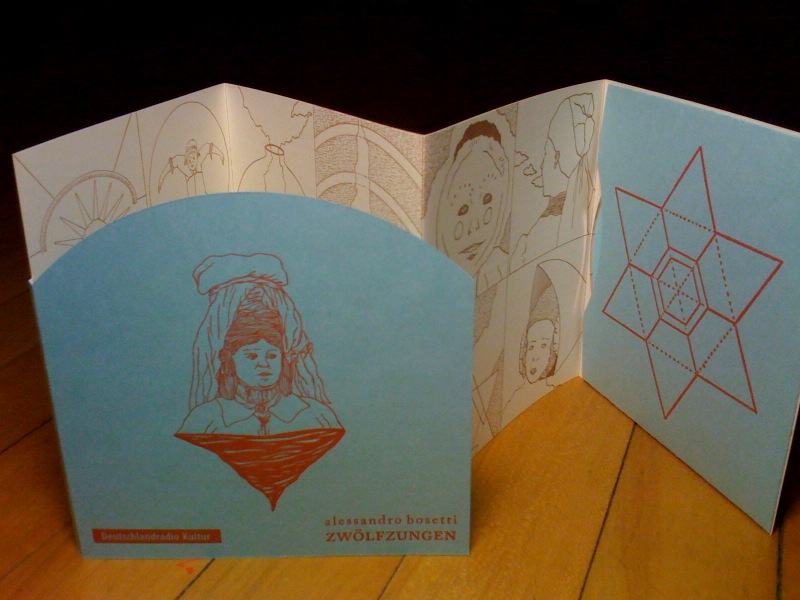ALESSANDRO BOSETTI: Zwolfzungen
sedcd055 | Released in 2010 | Ltd Edition 500 copies | $10

I like to listen to languages I don't understand. I like the moment when the understanding of words stops and every language starts to "make noise". All languages have a special sound, some more than others have particular acoustic characteristics that delight this musician's ears.
For Zwolfzungen I collected recordings of eleven languages I'm not, or partially, able to speak and understand. Eleven languages I encountered in my travels, whose sound I especially liked. Moreover, I invented a twelfth one, developed and learned during the past years and featured as a last installment of the series. Zwolfzungen could be translated as twelve languages as well as twelve tongues. I try to "misunderstand" each one of those languages as much as I can. They include, among others: Dogo, Basque, Urdu, Mandarin, Cherokee, Japanese and Zulu.
For each language's recording I developed a specific piece of music, disengaging from the meaning of the words and instead concentrating on its sound and rhythm. The pieces are not intended as features or documentaries as I'm not inserting any explanatory aspect into their context. I used whatever compositional ideas and methods the source material inspired : tape collage, electro-acoustic processing, max/msp, low-fi sound devices and then performed them live, mixing my voice with pre-recorded and realtime electro- acoustic materials. Each piece is a unique musical universe and be may listened to individually or as a total group.
Zwolfzungen was originally commissioned in 2005 as a radio art piece for DeutschlandRadio Kultur in Berlin and re-worked as a multi-channel live performance in 2007.
http://www.melgun.net/zwoelflisten.html
some press clips:
"...in recent years Alessando Bosetti has produced an interesting and original body of work that utilizes language and the spoken word as its main focus. His interests are not so much in the direct meaning of words but in their shape and form, the way they sound, their abstract acoustic properties and potential for use in electroacoustic composition...Bosetti builds a musical accompaniment around them using a wide variety of processes ranging from tape collage, computer processing and lo-fi sound devices. While the material has been gathered over a long period of travel, the music here has all been realised in an improvised situation, with Bosetti responding directly to the natural rhythms of the languages and creating quite different music for each one. Japanese texts produce a soft, vaguely Techno-inspired atmosphere; a loud Haitian rant results in a wild, chaotic avalanche of noise. The music manages to skirt the border between documentation and abstract musicianship. The personalities and characteristics of each speaker remain very much present in each falter of the voice, each suppressed laugh, and yet these elements become less human along the way; sonic material sculpted, shaped and blended into the surrounding sounds irrespective of the meaning held in the spoken words. Bosetti shows a real love of language in these charming works. The music has a really positive, joyful, perhaps humanistic feel to it. This thoroughly original music extends the possibilities of improvisation into new and fertile zones. -Richard Pinnell, The Wire(Sept, 2010)

